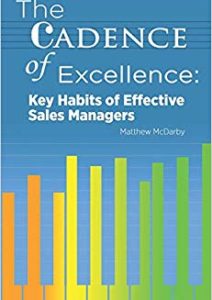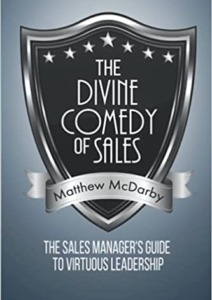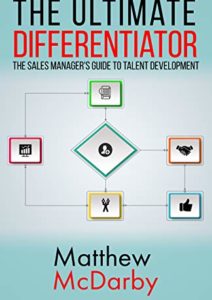It may or may not surprise you to know that trust is practically universal in being a decision-making criterion for buyers. But what may come as a surprise is the frequency with which that factor tips the scales from one vendor to another.
Not long ago my company conducted a survey of 800 people. We were asking questions in regard to significant buying decisions they had made within the last two years. We first asked them if they had purchased a significant product or service from a supplier who did not offer the lowest price, to which the majority answered, “yes.” To those people we then asked a follow up question: “What was the major reason you chose to do business with a supplier who was not offering the lowest price?”
The number one reason provided by more than 50 percent of those respondents was that they knew and trusted the supplier. Stated another way, close to three out of five people who bought something and didn’t take the low price option, did so simply because they trusted one supplier over another. Their reasoning had nothing to do with unique features, customizations, or valuable insights gained during the buying experience–or anything else one might expect to hear in response to this line of questioning. It was simply and only about trust.
Trust is earned, most commonly, in the context of an existing relationship, but even then it can take time. For this reason incumbent suppliers have an enormous advantage over newcomer suppliers who have not yet earned trust. And while there are strategies that suppliers can use to successfully challenge incumbents, it can be incredibly difficult to overcome trust as a decision criterion when you are an unknown challenger. Incumbents who lose often realize too late that they’ve squandered their customer’s trust. Challengers who succeed are able to capitalize on the trust deficit that arises when incumbents take their eye of the ball.
Knowing just how large trust looms in buying decisions today, it is worthwhile to consider what your business is doing to build and maintain trust. Your sales strategy is not complete if it omits the question of where trust advantages or deficits exist with customers. Following are some questions that I’d like you to consider regarding the role that trust plays in your market, with your current customers, and with your future ones:
- Do you know how much your current customers trust your company and what they trust you to do exceedingly well for them? Do you have any current customers who would willingly and candidly answer those questions? How could you use that information?
- Is your company’s brand trusted in the marketplace? What about the “brand” message that your people convey on social media platforms and in their personal profiles? Do they help to build your company’s reputation as a trusted supplier, or do they erode it?
- With regard to new customers, those with whom you have no existing relationship, are you seeking out and focusing some energy on opportunities in which the incumbent has lost some of the customer’s trust? What are you doing to investigate those situations and to clarify the degree to which the customer is dissatisfied? How can you help those customers conclude that your company may be a more trustworthy option?
- What types of proof sources (e.g. testimonials, expert content, or relevant use cases) have you assembled to help those in your marketplace draw the conclusion that you can be trusted in ways that others perhaps cannot? What do you want prospective customers to conclude about your business?
We could spend a few thousand more words on the topic of trust, but all that I really want you to consider for today is whether it is possible to affect how much prospects and customers trust your business.
I wager your answer will be, “Yes.” Will it be challenging? Absolutely. There are no tricks and no gimmicks that will build trust quickly. You and your team have to be absolutely, one hundred percent authentic in your efforts to build trust with customers. When you make commitments to prospects and customers, live up to them without fail.
“Overtly demonstrate your commitment to your customers’ best interests.”
The results of our survey are proof enough that if you hope to compete based on criteria other than price, then one of the most important areas of opportunity for your business will be the degree to which buyers trust you. Your ability to satisfy this crucial buying criterion will impact your future revenue growth.
Pipeliner CRM empowers sales teams to gain prospect and client trust. Get your free trial of Pipeliner CRM now.
















































Comments